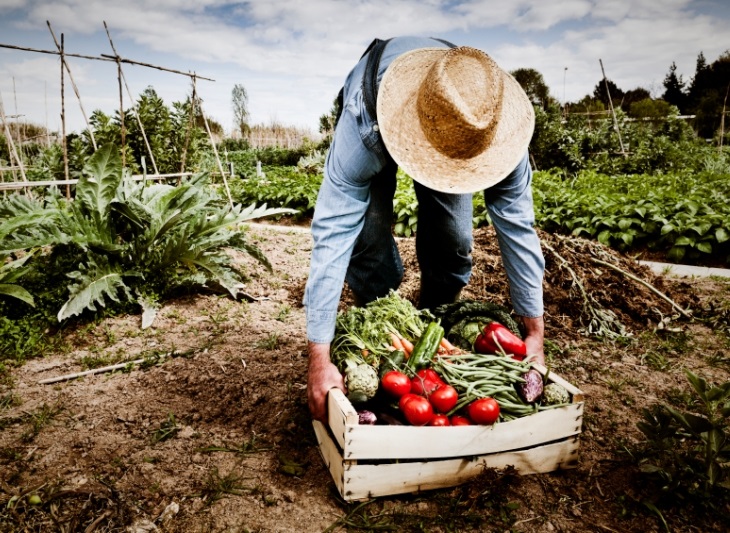Putting food first in the APEC region

Food security is not just an economic and social problem, but is an issue for the future of millions of people.
Speaking to a packed auditorium at the APEC CEO Summit in Vladivostok, Russian President Vladimir Putin recently echoed the sentiment of APEC economies that the region’s food supply needs to be strengthened if future growth is to be secured.
Over the last two decades, APEC has collectively reduced the region’s undernourished people by 24 percent.[1] But while efforts are ongoing, food price volatility, extreme weather events, and a growing world population are making it more challenging for APEC members to ensure food security in the region.
Over the last five years, international food prices rose sharply on two occasions, once in 2008 and then again in 2011 – a situation not seen in global food markets since the 1990s. In particular, the United Nation’s Food and Agriculture Organization (FAO) Food Price Index (FPI) increased 41 percent between June 2010 and February 2011, while the price of cereals jumped by 71 percent during the same period.[2]
According to a new study published by APEC’s research arm, the Policy Support Unit (PSU), these price hikes and price volatility can have a profound impact on household incomes and purchasing power. They can potentially “transform vulnerable people into poor and hungry people.”
The report, surveying food security policies in the APEC region, also indicated that between now and 2050, the world’s population is expected to increase by 2.4 billion, from the current 6.9 billion to 9.3 billion, with APEC economies from the Asia region capturing the lion’s share.
Food production will therefore need to increase by 70 percent and agriculture sector investment raised by 50 percent in order to feed the world’s growing population, the FAO estimated.[3]
“Food security is not just an economic and social problem, but is an issue for the future of millions of people,” Mr Putin told prominent business leaders, policymakers, academics and journalists at the recent APEC CEO Summit held in Vladivostok.
“More than a billion people around the world are going hungry; [and] we cannot ignore a social and economic problem of this scale.”
Last month, APEC Leaders met in Vladivostok, Russia to consider ways to tackle food security challenges in the Asia-Pacific region – as well as to advance other priority issues such as expanding regional economic integration, establishing reliable supply chains, and fostering innovative growth.
At the end of their meeting, APEC Leaders stated their commitment to achieve greater food security region-wide, primarily by increasing sustainable agricultural production and productivity, further facilitating trade and developing food markets, enhancing food safety, and improving access to food for vulnerable groups.
APEC’s Agricultural Technical Cooperation Working Group (ATCWG) has been progressing APEC’s food security goals, along with the High Policy Dialogue on Biotechnology (HLPDAB). The groups, among other issues, are working to encourage greater technical cooperation and technology transfer among APEC members.
Significantly, APEC economies and business communities came together last year to establish the APEC Policy Partnership on Food Security (PPFS) – a high-level mechanism to help facilitate investment, liberalize trade and support sustainable agricultural development.
The ultimate goal is to establish a food system structure by 2020 that ensures greater food security across the APEC region. The PPFS will serve as the primary consultative forum to consider food security policies that will also involve other relevant APEC working groups, such as the Ocean and Fisheries Working Group and the Sub-Committee on Standards and Conformance.
This year, the partnership adopted the PPFS Action Plan for 2012-2013 to develop a road map to achieve the long-term objective of a unified food system and set out ways to realize the goals of the 2010 Niigata Declaration and the 2012 Kazan Declaration on food security.
In addition, the PSU’s new food security policies study complements APEC’s ongoing work by mapping out and helping policymakers better understand the current food security needs and priorities of each member economy. It also helps them assess the policy environment necessary to assure food security.
Indeed APEC’s role in strengthening food security cannot be overestimated. APEC economies are among the world’s largest food exporters and importers, reflecting a dynamic flow of traded food and agricultural commodities.
Together, APEC economies generated around 34 percent of global agricultural exports and 36 percent of agricultural imports in 2009.[4] And as a region, 72 percent of all of APEC’s food and agricultural exports are absorbed by member economies, while another 72 per cent of its imports originate from other APEC members.[5]
At the meeting with APEC Leaders last month, Mr Putin reiterated the importance of food security and said that it is one of the most pressing challenges of our time. “Clearly, the prosperity and quality of life of people living in the Asia-Pacific region cannot be improved without a prompt and effective resolution of this important issue,” the Russian President said.
With the Leaders’ resolve and APEC’s ongoing efforts to strengthen food security, APEC economies, together with business communities, are collaborating ever closely to not only raise food production and improve food access, but to also find enduring solutions that will help guarantee food security to the billions living across the APEC region.
[1] APEC Policy Support Unit (2012) Food Security Policies in APEC
[2] APEC Policy Support Unit (2012) Food Security Policies in APEC
[3] FAO (2009) How to Feed the World in 2050
[4] APEC Policy Support Unit (2012) Food Security Policies in APEC
[5] APEC Policy Support Unit (2012) Food Security Policies in APEC

